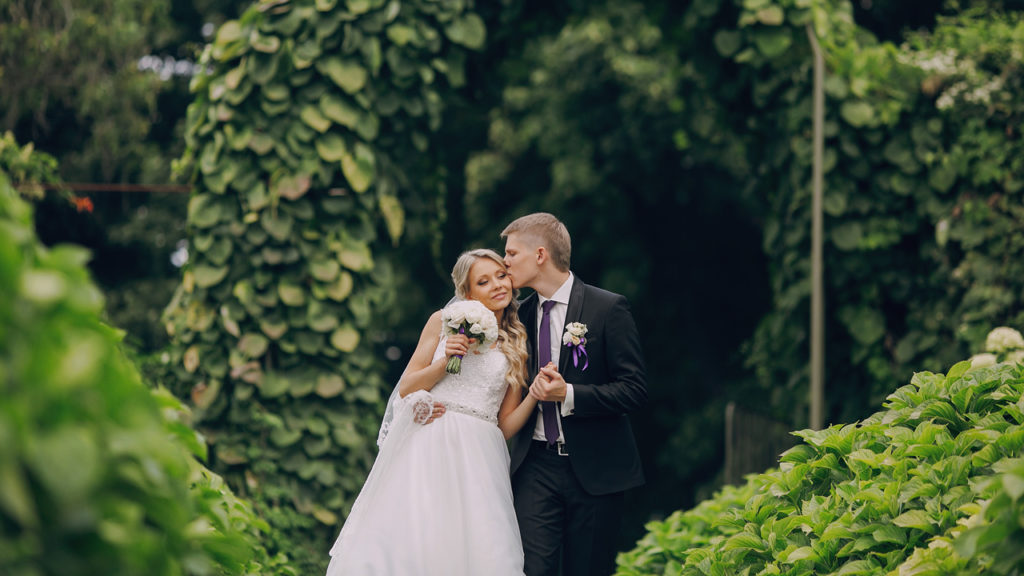It wasn’t her words that caught me off guard. It was the way in which she said them. Resigned cheerfulness. “Well, I’m glad I won’t have children,” she said lightly, taking a sip of coffee. “Too many things in the world to worry about. God knows I couldn’t handle it.”
My single friend’s admission that she had already given up on having children — at age 31 — surprised me. As we talked more, I realized something: Sometimes it’s easier to embrace an unwanted outcome than to keep hoping for God to fulfill long-held desires.
Around that same time, another single friend told me, “It hurts to keep hoping. Part of me just wants to give up on marriage and get on with making my life as good as possible without a husband.” I think a lot of singles feel this way. What does it matter if I want to be married if that’s never going to happen? I might as well quit torturing myself by hoping for it.
Hope Is Not Lost
I was 30 when I met my husband and 31 when I got married. In retrospect, that doesn’t seem very old to marry. But at the time, it felt as if I had been waiting forever. Some of my friends are in their late 30s and 40s and still unmarried; I can only imagine the temptation to pack up shop and embrace “Plan B” — life without marriage.
Here’s the thing: Giving up on a godly desire (when God hasn’t obviously taken that desire from you) is a form of escapism. Rather than sitting in the pain of unfulfilled longings — continuing to hope that God will come through for you — you take the less painful route of “choosing” the alternative. It’s a way of taking back control — a defense mechanism of sorts. And though that illusion of control (who are we kidding here) can be comforting, it shortcuts the joys of giving God complete control of your life.
We were created for hope. Scripture abounds with verses that entreat the believer to be filled with hope (Romans 15:13 is one example). It’s the reason a multi-billion dollar advertising industry exists. What do commercials offer us? Hope. When we quit hoping for a God-given desire, we deny a piece of how God created us and rob Him of the opportunity to glorify himself by meeting our needs.
Psalm 37:4 has become a sort of anthem for singles. It says, “Delight yourself in the LORD, and he will give you the desires of your heart.” To me, this verse always felt a little like a spiritual performance test. Was I still single because I was not delighting in Him enough? But I don’t think that’s the point. The point is that a relationship with God in which I feel delight in Him leads to godly desires within me, the kind He wants to satisfy.
Voices of Hope
As I asked singles (and those who married after a period of extended singleness) about the benefits of keeping hope alive, answers ranged from, “It simply feels better” to “I don’t want to have regrets later” to “It’s attractive to others.” A few responses stood out to me. Here are their stories:
Alex
Alex struggled with his singleness throughout his 20s, suffering a rocky three-year relationship followed by a broken engagement. After that, Alex says God began reshaping his heart. “Marriage was no longer something I refused to let go of,” he says. “It was really more of something I was seeking to trust the Lord in. I never lost the desire to be married; I just had a greater desire to accept what God had for me.”
At 32, Alex met and married Laura. Now with a 1 year old and another baby on the way, Alex is thankful he chose hope. “When we kill our desires, we are really saying that we don’t want to trust God in the day to day. Having a relationship with Him can be much harder than giving up hope because it requires vulnerability and trust … trust that He really can satisfy our deepest longings.”
Jackie
In her early 50s, Jackie has had to wait a lot longer than anticipated for a spouse, but she still hopes for marriage. “I have been tempted to give up on the dream of getting married, especially as the decades tick on, but I hold on to hope because we serve a God who can do anything,” Jackie says. “His Word tells us ‘nothing is impossible’ with God. And I choose to believe it.
“As I’ve seen friend after friend get engaged, say ‘yes’ to the dress, and march down the aisle toward a brand new life, I’ve felt discouraged. But I hold on to the hope that God’s way is perfect, His timing is perfect, and He is totally in control. The One who loves me most, God Almighty, is sovereign, and He will bring it to pass if it’s His best will for me.”
Michelle
Michelle, who is in her early 30s, feels ready for a spouse. “Culturally, I think we tend to go one of two directions: desperation or giving up,” she says. “But God is a God of hope, and to give up on hope just because we can’t see the next step is actually giving up faith.
“If we give up our hope in finding a partner, then we are likely going to quickly give up hope in other areas of our lives. Not losing hope is a spiritual discipline. I’ve also found that as I press on, my view of what marriage is about has developed into a more mature and selfless desire rather than simply not wanting to be alone.”
Ashley
Ashley is a newlywed. “Being single into my 30s seemed like one long string of disappointments,” she says. “So holding onto the hope that marriage was still possible and that God would provide a husband did not come easily. What did come easily was cynicism. To protect myself from disappointment, I turned the very real hurt of singleness into a joke or a sarcastic comment.
“But cynicism didn’t help the pain in my heart. And it certainly didn’t make me any more attractive to the guys in my life. So as I entered my 30s, I made the conscious decision to remain hopeful and to fight for hope even if it meant I would be disappointed or might die still waiting for a spouse. I knew it wouldn’t always be easy or fun, but my prayer was that God would give me the strength to remain hopeful.”
Choosing Hope
As I entered my 30s without a boyfriend in sight, I also chose hope. It was a daily decision. I often reminded myself of Romans 5:5, which says, “And hope does not put us to shame, because God’s love has been poured into our hearts through the Holy Spirit who has been given to us.” I didn’t have to worry about appearing foolish as I hoped for marriage. Not only that, but I had a close, personal friend to help me: the Holy Spirit.
I have met older single women who are bitter and filled with regret over what might have been. I have also met single women of the same age — like Jackie — who are filled with joy, peace and hope. When I was a 20-something single, I already knew which kind of woman I wanted to be: the hopeful kind. This level of confidence in God’s goodness comes from trusting Him implicitly and giving Him control. But at times it may feel like the painful, all-night wrestling match Jacob had with God for a blessing (Genesis 32:22-32).
Alex points out another advantage to hoping in the midst of disappointment: “The pain of longing for what we desire should only push us to Christ and remind us of the ultimate glory of who He is and what we are promised in Him.”
That’s why hope is worth fighting for. And it’s a beautiful fight.
Copyright 2015 Suzanne Gosselin. All rights reserved.












